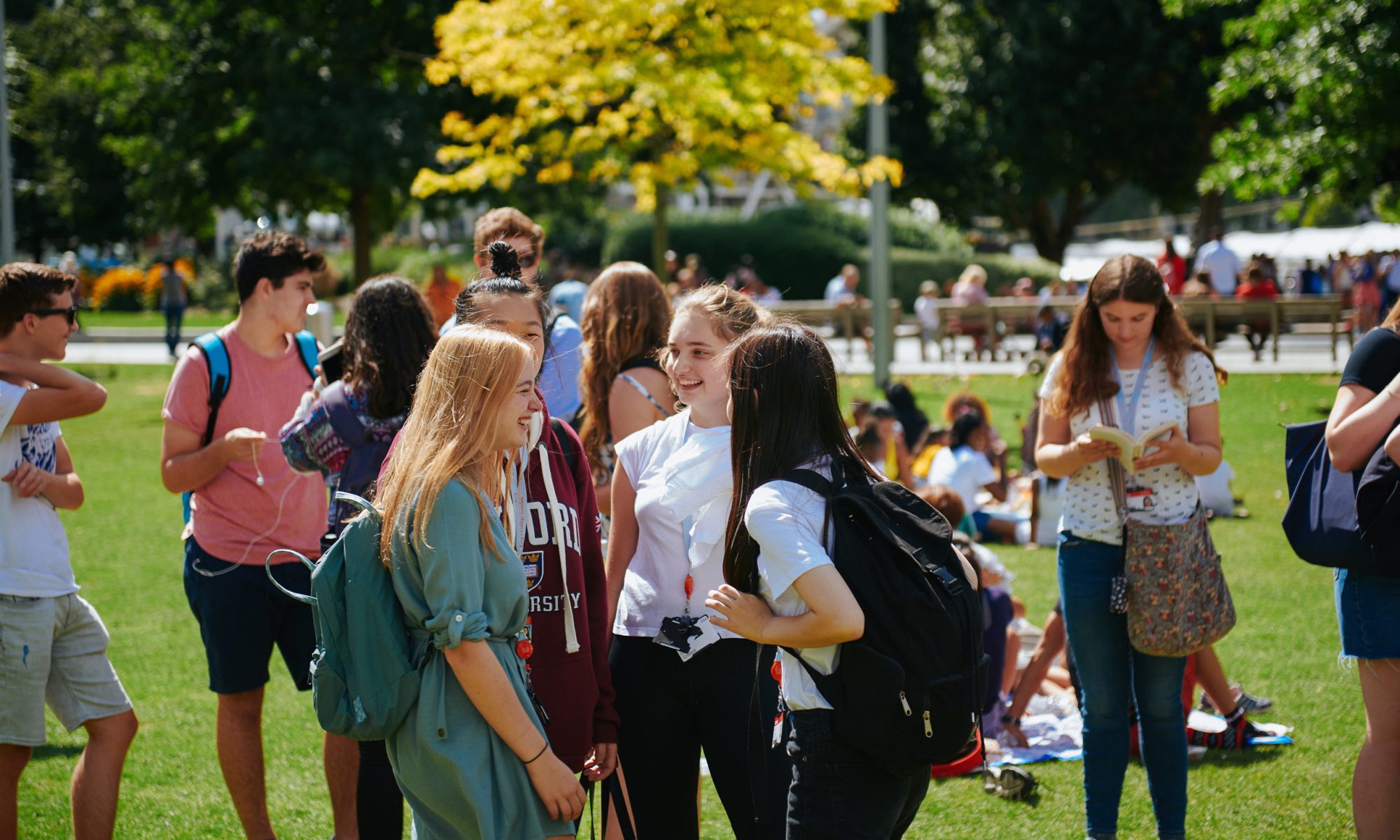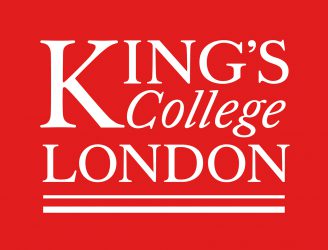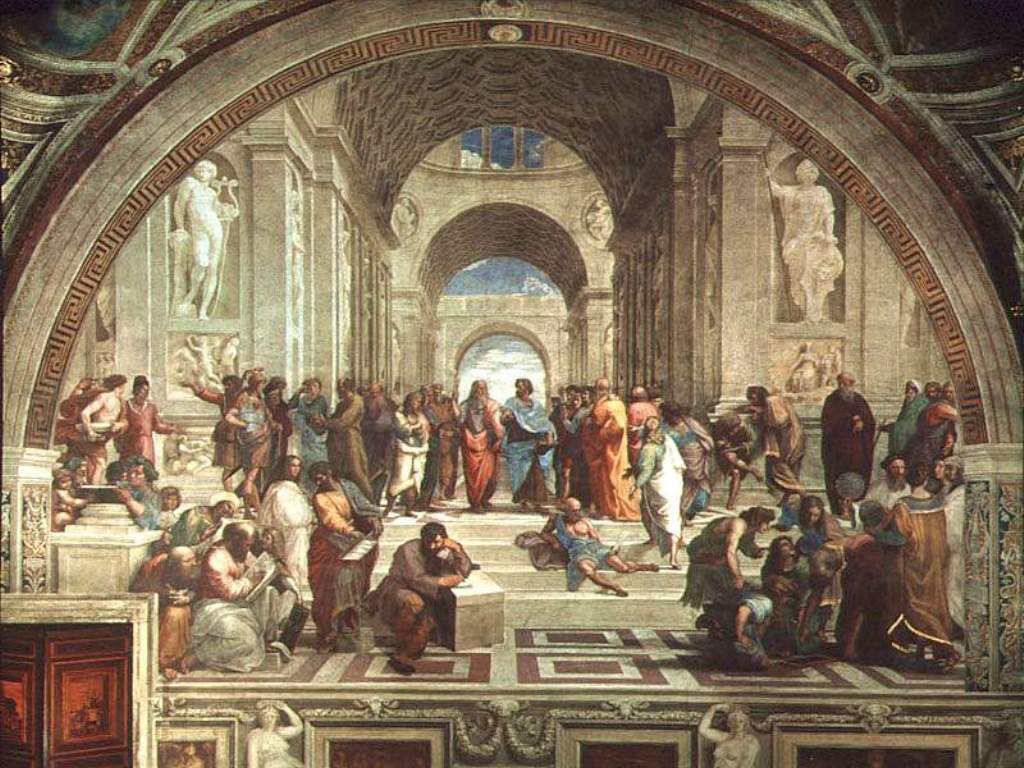Interested in learning more about a particular course? Who better to talk to than the tutor in charge! This week, Katharine O’Reilly, the tutor for Ancient Philosophy, tells us a little more about her course and why London is the perfect setting for it.
‘One of the real advantages of studying Ancient Philosophy at King’s College London is that this city is a hub for the discipline – in addition to the course, there are talks by scholars, and other events, nearly every day.
We’re also so lucky to have the British Museum on our doorstep, and during the course 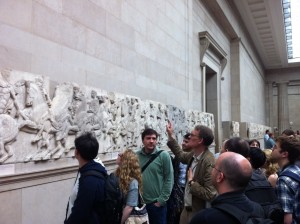 we make a trip to see the Greek collection, and usually have a talk from an expert. This last year we were lucky enough to have Sam Moorhead speak to us about a new interpretation of the Elgin Marbles. Experiences like that transport us back to the cultural surroundings in which the philosophers we study flourished.
we make a trip to see the Greek collection, and usually have a talk from an expert. This last year we were lucky enough to have Sam Moorhead speak to us about a new interpretation of the Elgin Marbles. Experiences like that transport us back to the cultural surroundings in which the philosophers we study flourished.
One of the aims with which the course was designed is to bring out the very practical consequences of doing philosophy. For the Ancient Greeks this was obvious: the philosophical school you were part of, and the conclusions you agreed with, dictated your life choices. Philosophy was a lived discipline. One of the wonderful things about the Summer School is that for many students studying away from their usual surroundings, joining this new community is a chance to do some self-reflection. Studying the Ancient Greek philosophers is a chance to use their work to help inform your thinking about your life, and for some that experience will be transformative.
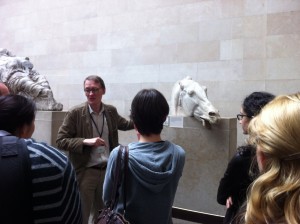 In addition to doing close reading of ancient texts, and debating the issues therein, we also look at modern writing which attempts to answer some of the same questions. This unique format means that in a short time, we not only get to grips with how to understand and evaluate philosophical arguments, we also get to trace the intellectual history of an idea up to the present debate. As a skill set to walk away with, this has some of the widest applications.
In addition to doing close reading of ancient texts, and debating the issues therein, we also look at modern writing which attempts to answer some of the same questions. This unique format means that in a short time, we not only get to grips with how to understand and evaluate philosophical arguments, we also get to trace the intellectual history of an idea up to the present debate. As a skill set to walk away with, this has some of the widest applications.
The key questions we look at include some of philosophy’s most essential problems: Are the events of tomorrow already decided today? Can anyone ever really know anything? What is happiness, and is it different than pleasure? What is justice, and what do we owe each other? In class we’re interested in understanding what answers that ancient and modern philosophers have given to these questions, but we’re also interested in being critical of their arguments, and considering our own answers to the philosophical puzzles raised. Seeing students find their own voice in these central debates is always exciting.
Now that spring has arrived in London I’m very excited that this year’s Summer School is approaching. I invite you all to come and wonder with the ancients, and discover why the whole history of philosophy is merely ‘a series of footnotes to Plato’.
You can watch a short introductory video of Katharine chatting about her course here.
